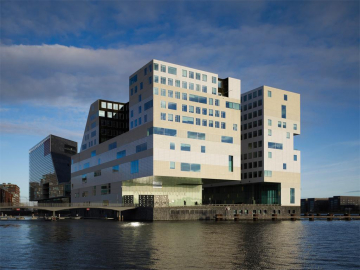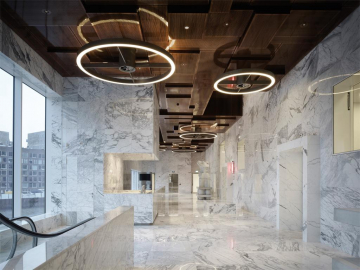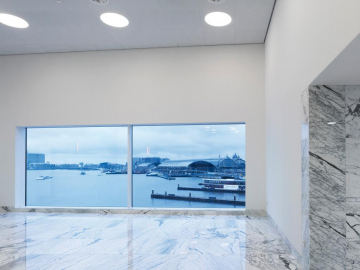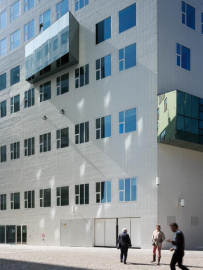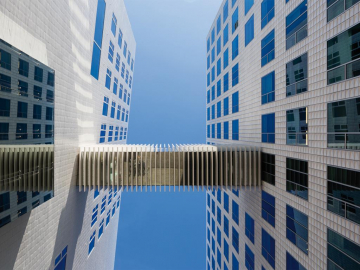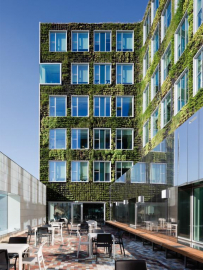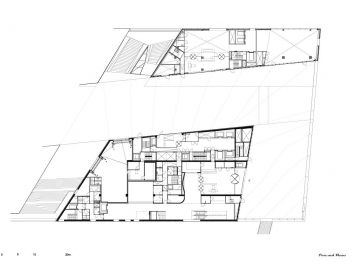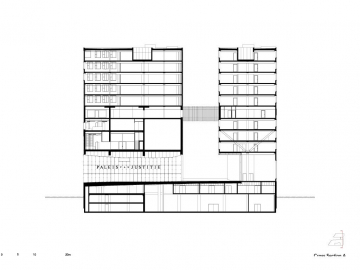Magistrates Court
The Magistrates Court in Amsterdam is an important public building that hosts a very complex program. Within a very strict zoning plan it manifests itself as an abstract and light yet robust and timeless complex. The materialization is of high quality and precise without being condescending, a public building worthy.
The Magistrates Court consists two out of the five buildings that constitute the IJDok complex; a mega block with radical intersections that were originally designed to accentuate existing lines of sight from the city. The multifunctional building integrates different functions efficiently: courtrooms, detention centre, offices, library, restaurant, conference centre, parking and the so-called observation area (public foyer). The design brief was logistically and organizational one of the most difficult tasks imaginable for an architect. And yet the Magistrates Court as a whole has a friendly, sustainable and inviting but at the same representative appearance.
The prominent location on the old IJ lake near Central Station emphasizes the great significance for the city. There is an extreme urban situation where a very complex public program for two users (Amsterdam Court and Public Prosecutor) had to be housed in a strictly defined urban envelope. More specifically the Magistrates Court is an office building on top of a complex with courtrooms separated by a transfer zone with restaurants, library and conference centre. On the fifth floor the main building is connected to a ten-storey office tower of the Public Prosecutor by a pedestrian bridge.
The main entrance is situated beneath a gigantic canopy and faces Amsterdam Central Station. The public interior has large windows that afford a view of the historic centre. The offices have the farthest view: nothing but water and (historic) city.
The observation area and courtrooms are explicitly designed for the public character of this part of the building. The three levels in which they are located are connected by both stairs as escalators. The continuity of this important area, which also functions as a waiting area, is enhanced by meticulous mounted marble on floors and walls. The material refers to the famous Vierschaar in the Royal Palace, the oldest courthouse in the city.
Other rooms in the building are predominantly light or white. This generic colour masks imperceptibly the very complex layout of different routes: the observation area (for the public), the protected area (for judges and general attorneys) and the vital area (for prisoners). These routes are completely separated and only meet in the courtrooms. To solve this program within the given time and agreed construction costs, commissioned by a developer, is for us a source of great professional pride.
Sustainability was an important topic in the design and construction process of the Magistrates Court. Upon completion of the building the BREEAM certificate Good was issued. The real sustainable success of the building will, however, eventually derive from its high quality materialization and strong identity.
GFA
Total 34.110 m²
Offices 17.400 m²
Courtrooms and public foyer 7.400 m²
Special program 2.640 m²
Parking 3.220 m²
Cell and interrogation area 1.450 m²
Archives 1.200 m²
Outdoor space 350 m²
Commercial space 250 m²
Judicial police 200 m²

